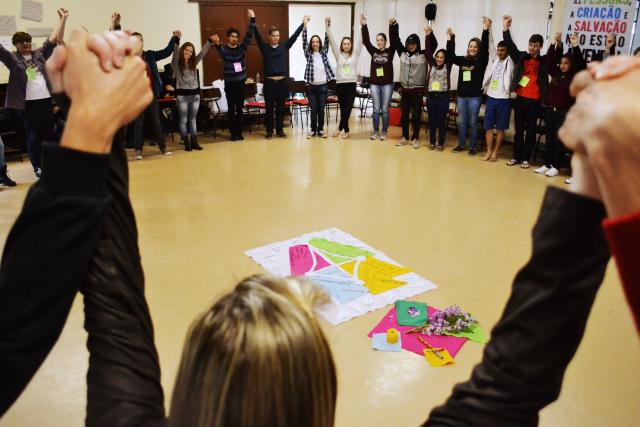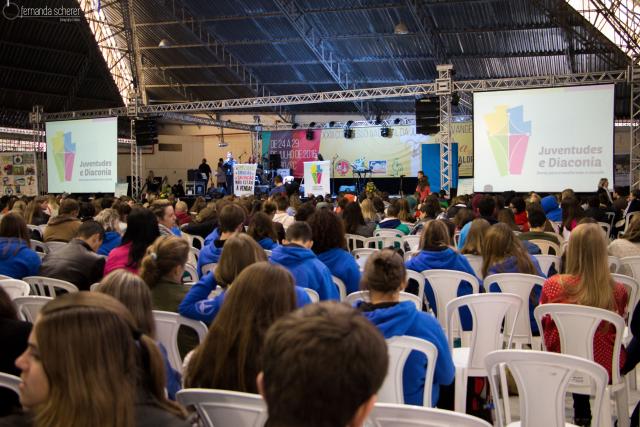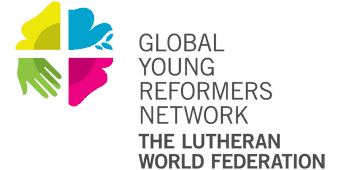Brazil: Youth and Diakonia

Human beings - not for sale
Youth and Diakonia: Free to Transform the World
Young Reformers: Eduardo Borchardt, Katilene Willms Labes and Martina Wrasse Scherer
Church: Evangelical Church of the Lutheran Confession in Brazil
Implementation period: December 2015 – ongoing
How many people were involved? 54
How many people did you reach? 500-1000
Links to the Project : https://www.facebook.com/juventudesediaconia

What did you aim at?
-
Training 36 youth about the various aspects of diakonia and social issues
-
Developing local youth projects of diaconal action
-
Dissemination of the campaign Youth and Diakonia: Free to Transform the World
-
Creation of a diaconal network with different partners
-
Publication of the results
What did you achieve?
-
Trained 54 young people:
-
-
the history, concept, and implications of diakonia
-
topics included human rights, volunteering, networking concept
-
diaconal action: how we can practice diakonia as youth in each context of the country
-
What did you do?
-
Creation of material for project management
-
Monitoring of the implementation, application, and development of the project through social media groups
-
Presenting the project to young people participating in the National Congress of Evangelical Youth (“Congrenaje”) in July 2016.
- Partnering with entities involved in diaconal work and advertising the activities of these partners
Interview with young reformers
- What is the ongoing reformation you want to see in your church?
A church must be alive and diakonia is the expression of the love of Christ. Our youth need to know what diakonia is.
- What has been the reaction of the project among the youth?
The reaction has been really amazing. Youth from all different parts of Brazil took part in the training and leading of their own projects. The reaction has been very positive also from the networking partners in church and church organizations.
- How has been the participation of the youth in the reformation project?
We trained 54 youth leaders from all the different regions of Brazil to start their own diagonal projects with youth in their churches. We estimate the outreach has been about 500-1000 people, which includes the network alliance with deacons and other church workers spreading the project work.
- What has been challenging about creating the project?
The distances and the time have been the biggest challenge to meet with people. The virtual meetings in skype sometimes can be difficult to agree on important decisions.
- Did everything go as planned?
The distances and the time have been the biggest challenge to meet with people. The virtual meetings in skype sometimes can be difficult to agree on important decisions.
- How do you see the continuity of the project?
Yes, we want the project to stay as a permanent activity and function in our church in Brazil. The development of the project will continue in a bigger scale to make the diakonia more visible, where everyone takes part in the work. We have created a new form of work in our church and hopefully it will continue functioning for years to come.
